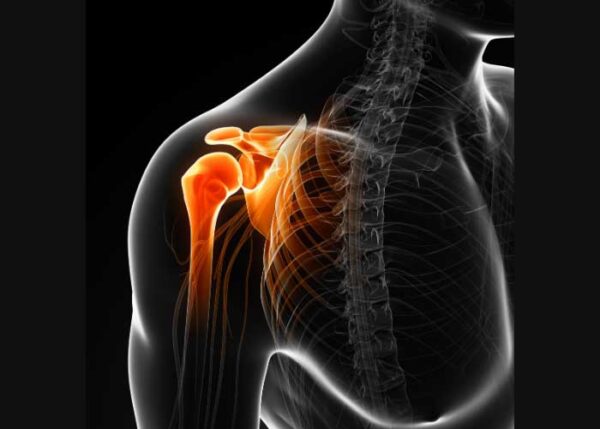What is a rotator cuff injury?
The rotator cuff is a system of tendons and muscles that surround the shoulder and give it stability while allowing a large range of motion. Four muscles come together and attach to the bone with tendons on the insertion point at the top of the shoulder. These tendons work with the muscles to hold the ball of the humerus (upper arm) securely in the glenoid (socket). The tendons in the rotator cuff can be injured easily, because they move within a small space. A rotator cuff injury occurs when one or more tendons of the rotator cuff become strained, inflamed or torn. Patients who experience shoulder pain and weakness from a rotator cuff injury should see Dr. Armando Vidal, orthopedic shoulder specialist, serving patients in Vail, Aspen and the surrounding Denver, Colorado communities. Dr. Vidal has extensive experience in treating patients with a rotator cuff injury and can be trusted to get them out of pain and back to the activities they love.

What types of rotator cuff injuries can occur?
Rotator Cuff Injuries represent a spectrum of different conditions. Dr. Vidal treats a vast number of shoulder and rotator cuff injuries, including:
- Impingement Syndrome – Occurs when the rotator cuff tendons bump or rub against the acromion (bony knob) at the front of the shoulder. This can cause inflammation which can lead to other rotator cuff problems.
- Rotator Cuff Tendonitis – Inflammation of one of the tendons which causes pain during certain, specific movements when the muscle that pulls on the tendon is being used.
- Subacromial Bursitis – Also called shoulder bursitis; occurs when inflammation from the rotator cuff injury spreads to the sacs of fluid (called bursae) that lubricates the rotator cuff tendons.
- Rotator Cuff Tear – The tendon may tear partially or completely if it has been weakened, or in cases of trauma or overuse.
What are the symptoms of a rotator cuff injury?
Rotator cuff injury symptoms can differ, depending on the exact injury. Typical symptoms can include:
- Pain in the shoulder and upper arm
- Pain that is noticeable when reaching up or out
- Pain in the shoulder at night that limits sleep
- Pain when the arm is turned and lifted
- Pain that is worse when combing your hair, or putting on a shirt
- Shoulder weakness
How is a rotator cuff injury diagnosed?
Dr. Vidal will obtain a thorough patient history, including the events that lead up to the shoulder pain. Mild rotator cuff injuries can be diagnosed with a physical examination. Dr. Vidal will rotate the arm at the shoulder and then will raise the arm. If the motion causes pain, the rotator cuff may be inflamed. Noticeable weakness in the shoulder may need further testing, such as an MRI scan to check for a rotator cuff tear.
How are rotator cuff injuries treated?
Inflammation, tendonitis, bursitis and small rotator cuff tears in the shoulder can often be treated non-surgically. Dr. Vidal may prescribe the following:
- Rest
- Ice
- NSAIDs (non-steroidal anti-inflammatory drugs) to help with pain and inflammation
- A corticosteroid injection
- Physical therapy
Surgical treatment may be necessary if non-surgical treatments have failed to alleviate symptoms, or if there is a large rotator cuff tear. Often, Dr. Vidal will use a minimally invasive procedure called arthroscopic rotator cuff repair. This specialized surgery uses a small camera called an arthroscope and small, specialized surgical instruments to repair the damage within the shoulder joint.
Locations
180 S Frontage Rd W
Vail, CO 81657
226 Lusher Court
Ste 101
Frisco, CO 80443
322 Beard Creek Road
Edwards, CO 81632


